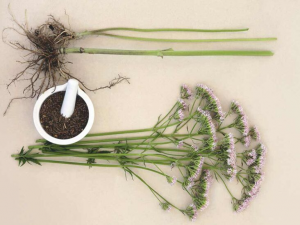If you are wondering, what are natural sleep aids? There are several types of herbal supplements to help you fall asleep. The most popular ones include melatonin, essential oils, and magnesium. Each of these ingredients helps you sleep better, but you must remember that children or pregnant women should not take them. These products may have adverse effects. Some of these herbal supplements are known to cause dependency, so make sure that you check the labels before taking them.
Your local health food store is a good place to start looking for natural sleep aids. Many of these supplements contain herbs, which are considered safe for humans to consume. Lavender is one of the best herbal sleep aids, as it is well-known for its calming and relaxing effects. In Japan, a recent study found that lavender aromatherapy significantly improved sleep quality and reduced anxiety symptoms in healthy participants. You can also buy lavender capsules or essential oils from a drugstore, supplement store, or chain store. You can even purchase oral lavender capsules at GNC.
Some Natural Sleep Aids For Getting A Proper Rest
Did you know nine natural sleep aids may help you get some shut-eye? These substances are readily available at health food stores, grocery stores, and drug stores. Although they do have side effects, most are safe and relatively inexpensive. Some may experience heartburn, digestive problems, and headaches. Other natural sleep aids may not have these side effects. But if you’re having trouble getting to sleep, there are plenty of options to consider.
Valerian Root

Valerian root can be taken as a supplement to reduce anxiety and improve sleep. However, it can interact with certain medications and alcohol. If you are taking any other type of medication, consult your doctor before using this herb. It can cause nervousness and headaches, and it should not be used as a replacement for these. To avoid these side effects, taper your dosage over time and check the labels. You may find some products that have standardised ingredients that you prefer.
Magnesium
A study published in Nutrition has linked magnesium to better sleep quality. It suggests that taking supplements of magnesium before bedtime may help relieve insomnia. Restless legs syndrome, also known as RLS, is a nervous system disorder that causes irresistible urges to move the limbs during the night. The theory behind this is that magnesium may help the nerves relay electrical signals, allowing them to fall asleep more easily. However, the evidence is mixed and limited, and you should speak with your doctor before starting any new sleep supplements.
Passion Flower
While some people might think that passionflower isn’t an effective herbal remedy for sleep, it has many uses. Traditionally, it has been used to treat mental stress, restlessness, and insomnia. It has also been known to reduce blood pressure, relieve muscle spasms, and help with nerve pain. This plant can be taken by mouth to relieve stress and help you sleep at night. However, it is not recommended for people who are not used to taking herbs for sleep.
Passionflower can help people fall asleep and stay asleep as a natural sleep aid. Some studies have shown that it can improve the sleep patterns of mice and rats. Some researchers found that the herb could reduce rapid eye movement (REM) sleep and promote slow-wave sleep. Other researchers have found that it may help people fall asleep faster and stay asleep longer. But as with any herbal remedy, you should be sure to check with your doctor first before using passionflower for sleeping.
Glycine
It’s no secret that glycine is a key amino acid. Research has suggested that it can help improve sleep efficiency and quality, reduce latency, and enhance cognitive performance. As one of the most abundant amino acids in protein-rich foods, glycine may also have other beneficial effects. It has also been used to treat insomnia and other sleep disorders. This article will discuss its many benefits, including its role in improving sleep.
In studies, glycine is known to help people sleep more quickly and sleep deeper. The amino acid has been found to reduce fatigue and sleepiness in healthy volunteers. It has also been shown to improve the symptoms of acute sleep deprivation in humans. It has also been shown to improve a psychomotor vigilance test, but there are some safety issues. It is important to consult with your physician before beginning any new supplement regimen.
Lavender
Among all essential oils, lavender is probably the best known for its sleep-inducing effects. It is especially useful for insomnia and is widely available in most pharmacies. Its aroma is soothing and relaxing, making it a perfect choice for the bedroom. The most common ways to use lavender to aid sleep are through inhalation and vaporising. Using essential oil is the easiest way to get the full aromatherapy benefits.
During a sleepless night, you can make yourself relax by smelling lavender. The smell of lavender is soothing and relaxing, and it has been used as an aromatherapy treatment for centuries. A recent study found that the essential oil of lavender significantly improves sleep quality. If you’ve had insomnia for some time, consider giving it a try. There are several benefits to using lavender for sleeping. You’ll find that it improves the quality of your sleep and reduces your stress levels.
Apart from these, some other elements that can give you a peaceful sleep are a proper bed, a proper mattress, different pillow sizes, proper blankets and duvets,etc.
In Conclusion
Before taking any medication, consult your physician about your sleeping problems and possible side effects. There are a variety of sleep aids available over-the-counter and prescription, and some of them can interact with other medications or have undesirable side effects. In addition, the use of a sleep aid should be limited to times when it’s not vital. Also, it’s important to get at least eight hours of restful sleep. Otherwise, you’ll wake up feeling groggy the next day.

